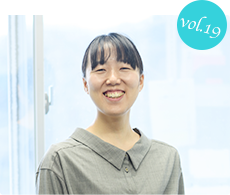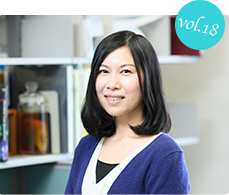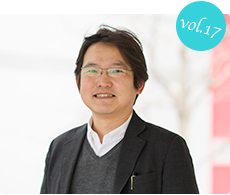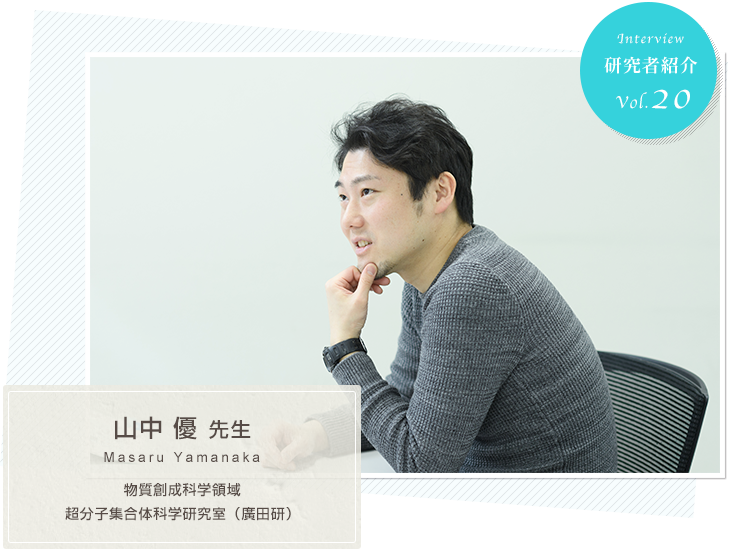
![]()
He received his Ph.D. in Agriculture from the Graduate School of Biosphere Science, Hiroshima University in 2010. He has been a postdoctoral fellow at the Graduate School of Biosphere Science, Hiroshima University since April of the same year, and a postdoctoral fellow at the Okazaki Institute for Integrative Bioscience, National Institutes of Natural Sciences since October. His areas of expertise are protein science and protein engineering.
Why did you become a researcher?
My parents are both scientists, and my mother was a junior high school biology teacher, so I always loved science. My parents came from the same university lab, and when I was in junior high school, I was taken to my parents' mentor's lab. I loved science, so I thought it would be a great career to do what I loved and get paid for it. That was the beginning of my thinking that being a researcher sounded interesting. However, in those days, once a researcher got a job, he or she could work there until retirement and do in-depth research, whereas today the environment has completely changed and the path of research is like a life of drudgery. I was inspired by seeing a place where people were doing intensive research, and I began to think that I wanted to become a biologist.
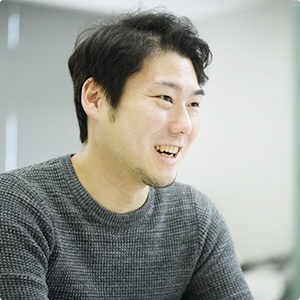
I enrolled in the Faculty of Agriculture and Bioproduction at the same university where my parents graduated. The undergraduate program was unique in that students had the opportunity to study a wide range of subjects, from molecular biology to food economics, and then choose their own field of study. It was during this selection process that I met my current research topic, protein, and my advisor, Dr. Yoshihiro Sanbongi. At that time, I had only a vague idea of protein as meat or nutrients. At that time, I had only a vague image of proteins as meat or nutrients. However, Professor Sambongi showed me a film in which he explained that proteins are microscopic, moving nanomachines. After receiving my Ph.D., I worked for a year and a half as a postdoctoral fellow at the Okazaki Institute for Integrative Bioscience of the Institute for Molecular Science in Aichi Prefecture. My specialty had always been biotechnology, but while I was at the Institute for Molecular Science, I heard Dr. Sanbongi and Dr. Hirota present their joint research at a conference, and then Dr. Sanbongi told me that there was an opening in the Hirota lab.
I think the research environment at the university is very good. First of all, the research facilities are very well equipped. The technical staff does a great job, and the research environment is really good. I supervise two students directly and seven or eight students in total, but I think I have a good balance between my research and teaching.
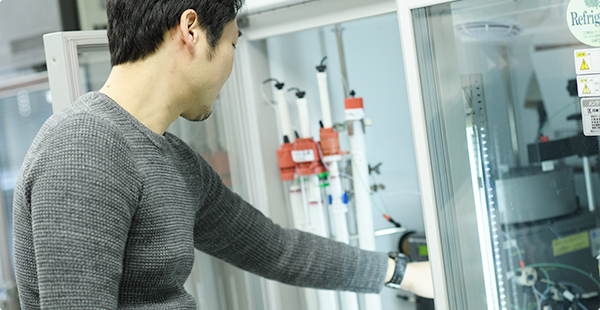
Daily schedule

My daily life has changed a lot since my child was born a year and a half ago. My life has become more child-centered. I no longer experiment late into the night like I used to. My wife is currently on maternity leave and will return soon. My wife and I both live far away from our parents, so we do not have parental help, but I think we are doing relatively well in sharing childcare and other responsibilities.
On weekday mornings, I get up around the same time the kids may or may not be up, leave the house, and arrive at the university around 9:00. I work, shuttling between labs and experiments, and return home around 6 or 7 pm. Before I go home, I go shopping and cook dinner. This has been the case since before our child was born. My wife takes a bath with our child these days. When the children were younger, I used to come home at 5:00 p.m. It is impossible for a single adult to take care of the children, including bathing, at that time. At that time, the lab meeting was scheduled for every Friday at 6:30 p.m., but that was too late, so they moved it to 5:00 p.m. So after the bath, we would play with the kids, and at 9:00 p.m. either my wife or I would put the kids to bed. After a good night's sleep, my wife and I would watch TV and relax.
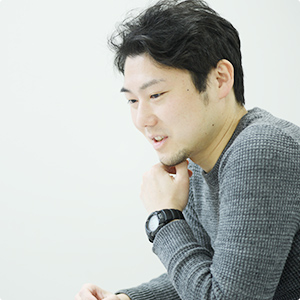
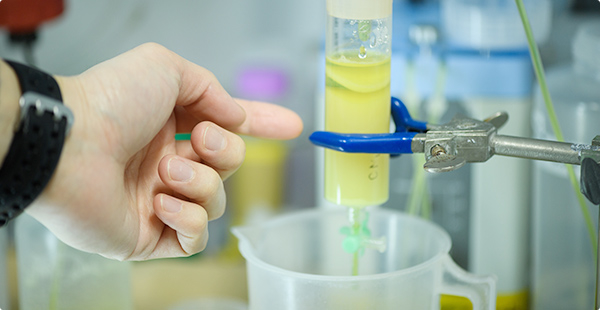
On Saturdays and Sundays, I make breakfast and the three of us sit around the table. Around noon, we go out to Osaka, and since my wife and I both like to drink, we go to our favorite restaurants and have dinner. On Sundays, I shop for groceries and make reserve dishes for the weekdays. Since I lived alone for a long time, I do all the housework, but my wife likes to clean and do the laundry, so she leaves it to me and I do the cooking. Cooking is like a hobby for me, so I enjoy cooking.
I don't bring work home. I don't even open webmail. I don't look at it unless I really need to at the right time, and I don't set up forwarding. I have always tried to take a break when I need to. Otherwise I cannot do a good job.
On issues related to the development of the research environment
I did not take parental leave myself, so my research did not stop because of childcare, but I was constantly sleep deprived for the first few months after my child was born. I would have liked to have been able to take advantage of the Academic Assistant System, which subsidizes the personnel costs of research assistants during this time. I would appreciate it if you could allow me to use this system immediately after the birth of my child. I would appreciate it if you could allow me to use it immediately after the birth of my child.
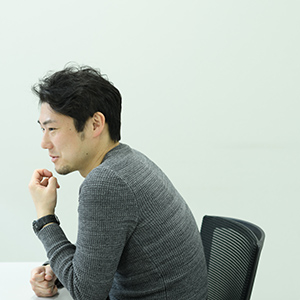
Those of you who have already finished raising your children may have forgotten how hard it is for a newborn to sleep at night or wake up every 3 hours, but this period is truly epic. I was basically sleep deprived all the time. In the beginning, my wife told me to sleep in another room because she didn't want me to have an accident on the way to work. I took paid leave every Wednesday, such as "male employee childcare leave," so that my wife could take Tuesday nights off alone. I think it would have been helpful to have an assistant to help me with my work during that difficult time. I hope that the research assistant system will be expanded in the future.
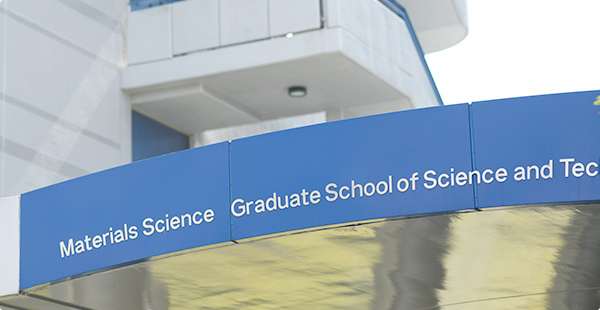
(March 2020)

-
2020.3 updated
Division of Materials Science
-
2020.3 updated
Data Science Center
-
2019.3 updated
Division of Information Science






